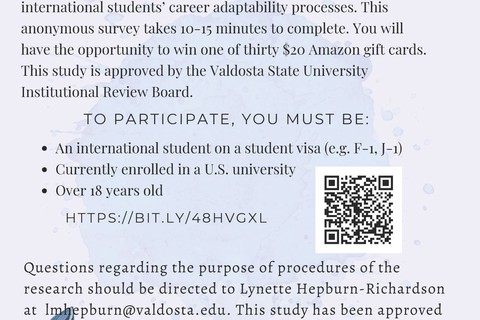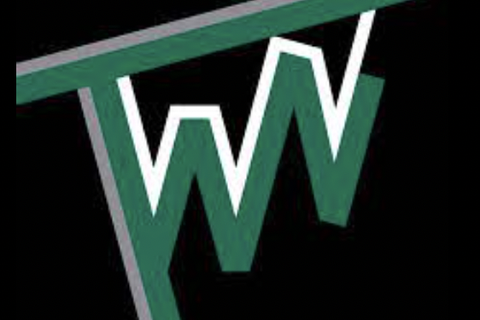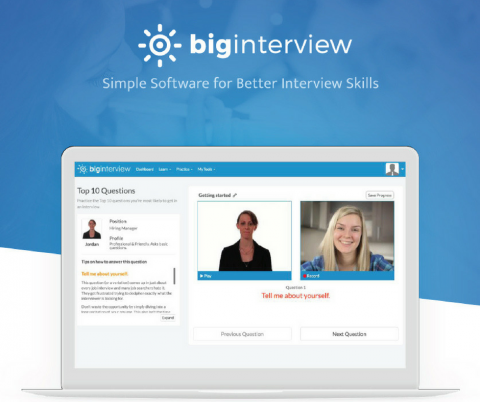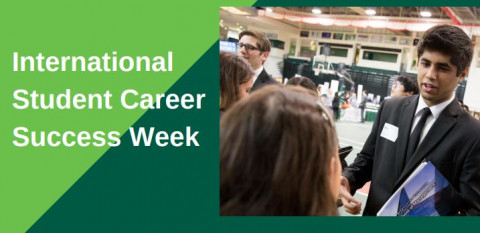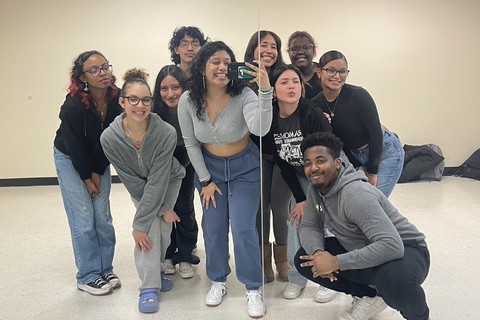If you need guidance or support with any part of the job search process, make an appointment to speak with a career consultant in the Fleishman Center through hireBING.
Important information about post-graduation employment and immigration processes can be found on the ISSS website here.
-
United States Employment Process
The first step in designing an effective U.S. job search strategy is to clearly understand the rules and regulations that govern your status as an F-1 student. For more information about the rules and regulations, please visit the International Student and Scholar Services (ISSS) Employment Resources website. Second, you are likely to discover that job-hunting in the U.S. is a different process than the processes and strategies used in your home country. The differences are culturally based, and therefore, you may have to work hard to overcome the natural inclination to conduct yourself as you would if you were looking for a job in your home country. Generally, the job search for new grads, domestic or international, is very self-directed. The school’s involvement includes planning career events, organizing on campus recruitment, resume reviews, practices mock interviews, and connecting you with alumni at alumni events. The Fleishman Center can also help students prepare for the job search through workshops and programs, and one-on-one consulting. Your job as a job-seeker is to:
- Research job and internship postings
- Attend Fleishman Center activities and programs, especially those focused on international students
- Go to the Job & Internship Fair every semester
- Utilize networking to meet people who can help you in your career
- Search for companies that support the hiring of international students
- Send out applications and follow-up appropriately
- Prepare for interviews with BigInterview software, accessed through hireBING, or with mock interviews
Networking You will notice that one of the BIGGEST differences between the U.S. employment market and other parts of the world is the reliance on networking . Attend networking events and programs to learn more about effective networking and take advantage of opportunities to practice your communication skills.
-
Common Cultural Barriers in the United States Job SearchOften, international students experience challenges in landing jobs in the U.S. because they are competing in an environment that is culturally different than their home country. Not only can written and verbal communication skills present difficulties in attempting to translate thoughts in your non-native language, but business cultures, customs, and expectations vary greatly by country. Companies in the U.S. want to be assured that their employees will represent them well. The following list examines some of the most common conflicting values between the U.S. and other countries. These conflicting values represent a cross-section from various cultures and not one specific culture. International students should seek out opportunities over the course of their Binghamton education to develop the skills needed to meet professional cultural expectations in the U.S. Expectations in the U.S.: Self-Promotion: Assertiveness, openly discussing accomplishments. Follow-up with employers, send thank-you notes, and don’t be afraid to ask questions and seek out information. Individual Responsibility for Finding Employment: Use of a wide variety of resources in identifying potential positions Use networking, the Fleishman Center, faculty, and peers to seek out opportunities. Personal referrals can carry a great deal of weight. Directness in Communication: Open and direct responses to questions. Make eye contact with the interviewer, use relaxed posture. Discuss salary and benefits only when initiated by interviewer or at time of job offer. Ask questions about the job at the end of the interview, or when prompted by the interviewer. Career Self-Awareness: Demonstrate knowledge of self, career goals and how they relate to the job. Be able to discuss short and long term career goals. Demonstrate the ability to be self-directed. Professional and Relaxed Communication Styles: Adapting to a congenial interviewing environment that encourages small-talk, openness, some joking, and exchange of information. Practice small talk and relaxed communication by attending networking events. Punctuality: Arrive 5-10 minutes before an appointment or interview Arriving early is arriving on-time. Effective, Skills-Driven Resumes and Cover Letters: Error-free, one-page, concise, and tailored outline of relevant job experience, skills, accomplishments, and academic credentials. Personalize your documents to reflect individual capabilities and strengths, in relation to the job posting. Individual Equality: Race, sex, and age, are legally not supposed to impact the hiring and interview processes. Demonstrate politeness and show respect to everyone you meet in the interview process, whether they are a receptionist or the CEO.
-
-
Immigration and Legal Employment for International Students
Immigration Processes – ISSS Office
Important information about post-graduation employment and immigration processes can be found online on the ISSS website.
International Students and Scholars Office
The ISSS office provides a preliminary list of immigration links to consult for further information about H-1B status and permanent residency.
American Immigration Lawyers Association (AILA)
AILA is a nonpartisan, not-for-profit organization that provides continuing legal education, information, professional services, and expertise through its 38 chapters and over 50 national committees.
ISSS Tax Resources
The ISSS offices at Binghamton University has compiled a list of resources to help international students file taxes. It includes information about Glacier Tax Prep.
-
Frequently Asked Questions
Q. Should I list my visa status on my resume?
Your visa status is typically not included on your resume. In many cases, your educational background and work history will show that you are an international student. Hiring managers will likely ask the appropriate questions about sponsorship during the recruitment process.
Q. How do I answer when I am asked by an employer about my work authorization as an F-1 student?
Start by explaining that you have the ‘legal right to work in the US for 12 months, or 36 months if you are earning a degree in an approved STEM field, under Optional Practical Training (OPT)! Gaining OPT work authorization requires little or no work on the part of the employer, and also does not cost the employer anything. Then share that ‘my work authorization can be renewed for another 3-6 years with an H-1B work visa’. Avoid using the word ‘sponsor’ when talking about the H-1B application process, instead use the word ‘petition’. Here are some questions the employer may ask in the application process:
- “Are you legally authorized to work in the United States?” Yes, you are, providing you apply for and receive CPT or OPT prior to starting any job or internship.
- “Will you now or in the future require sponsorship for an employment visa status (ex. H-1B status)?” Yes.
Q. When in the hiring process do I reveal that I am an international student?
This is a very sensitive question which needs to be assessed on a case-by-case basis. While some employers adhere to strict policies against hiring foreign nationals, others may prefer to hire U.S. citizens, but can be otherwise convinced. Therefore, it should be your goal to get past the initial screening measures to the interview. It is usually recommended that students wait until the employer asks, but it is in your best interest to research whether the employer has petitioned for the H-1B visa in the past. However, if you are being asked to pay for travel for an interview, it would be wise to ask at that time: ‘Is this a position in which the company is willing to petition for an H-1B visa in the future?’
Q. If a company says they do not hire international students, should I even apply?
It depends. If the employer is a federal agency or has a contract with a federal agency, they are not legally allowed to hire foreign nationals. But for many organizations that say they do not hire international students, it may mean that they haven’t hired international students yet. You may be the first! In order to convince these prospective employers, it is your responsibility to educate them about the process of hiring a foreign national. Be mindful that they still may not hire you, and this can become frustrating. It is recommended that you first target organizations with a history of petitioning for the H-1B. To get started, you can use a resource such as GoinGlobal, which can be found on hireBING.
Q. What can I do to make myself a more attractive candidate?
- Get your resume and cover letters reviewed by a career consultant
- Become thoroughly familiar with immigration regulations and benefits attached to your visa status (ex. CPT, OPT)
- Research the employers and the positions in which you are interested
- Participate in a practice mock interview.
- Practice speaking confidently about your skills, interests, and career goals
- Use Big Interview (access through hireBING) to practice interviewing online through video
- Improve your English skills by speaking up in class, giving presentations and expanding your circle of native English speaking friends
- Create and actively use a LinkedIn account
- Network, network, network! Get to know people of influence in the companies in your target industry
This information was created based on an accumulation of a variety of universities’ international job search resources across the U.S., including SUNY Buffalo, Rice, Texas A&M, and the University of Virginia.

Video Workshops On-Demand
Watch Fleishman Center recorded workshops on a variety of topics – including webinars specifically for international students! Click here to access the video library.
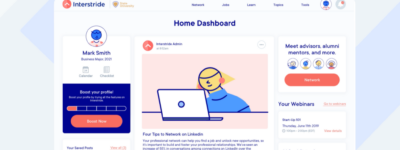
Interstride: Powertool for international student job searches!
Binghamton University students have free access to Interstride, an online resource to assist with your job and internship search. Use Interstride to access:
- Academic and career insights
- Visa and immigration information
- Employment trends and opportunities
- Networking with other international students and alumni
- Domestic and international job markets
Fleishman Center’s Programming for International Students

The Fleishman Center works with partner offices across campus to offer career-related programs specifically for international students. View the International Student Career Success Week Agenda
International Student Professional Development Mini-Conference (March 14, March 21, March 22)
Fleishman will be partnering with the International Student and Scholar Services (ISSS) to bring a 3 day professional development conference to international students. Sessions will be spread out throughout the week and include: resume/cover letter overview workshop, interviewing 101 overview, tailoring your material for the job search, and a personal branding presentation that includes a LinkedIn overview. Refreshments and snacks will be served during the conference. Register ahead of time on Handshake.

